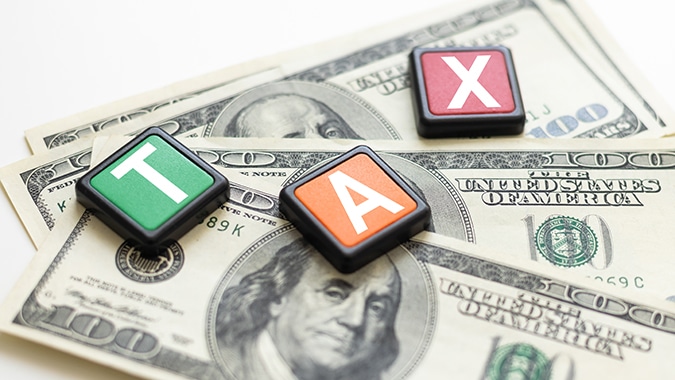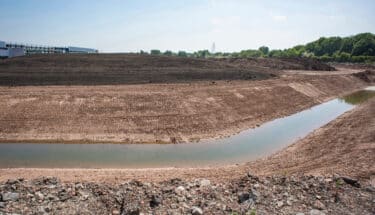TO: New Jersey Board of Public Utilities Office of Clean Energy
FROM: Ray Cantor, Vice President, Government Affairs
DATE: June 11, 2019
RE: In the Matter of the Comprehensive Energy Efficiency and Renewable Energy Resource Analysis for Fiscal Year 2020 Clean Energy Program – Docket No. O19050644; And In the Matter of the Clean Energy Programs and Budget for the Fiscal Year 2020- Docket No. QO19050645
On behalf of our member companies that provide more than 1 million jobs in the state and make the New Jersey Business & Industry Association the largest statewide business association in the country, I would like to offer the following comments.
The NJBIA is supportive of the Board of Public Utility’s efforts to reduce energy usage by promoting energy efficiency programs. Energy efficiency is the most effective means to manage our energy supplies and to reduce the emissions of harmful pollutants, including carbon. We also recognize the breadth of the filings, reports, and processes currently underway or recently made. We and our members have a strong interest in ensuring that the Board and the Office of Clean Energy make appropriate and informed decisions.
NJBIA has three primary concerns with the NJCEP filings. One, there was not a sufficient stakeholder process in the development of these filings and not enough details to fully appreciate the impacts. Secondly, there remains considerable uncertainty as to program administration to meet the State’s mandated energy efficiency goals. Finally, we object to the proposed elimination of incentives to switch to high efficiency gas burning furnaces. I will address each below.
Process: There was an insufficient stakeholder process leading up to these filings. While there have been some limited opportunities to submit comments or respond to questions in a formalized setting, there was not an opportunity to engage in discussions and engage with staff and consultants as concepts were developed. This process is not consistent with previous stakeholder engagements conducted by the Office of Clean Energy. While we recognize that the Office has been under pressure to meet numerous deadlines over the last year, we would rather have more time taken to produce more thought out and collaborative filings.
It is also difficult to analyze and comment on many of the proposals because of a lack of details provided. These programs will result in the expenditure of hundreds of millions of dollars and will impact businesses throughout the state. They will partly determine how utilities meet their energy efficient mandatory targets. It is incumbent on the Office to provide more details to allow for informed comments.
Administration: The Clean Energy Act requires that public utilities be required to reduce energy consumption by prescribed amounts. The Act does not make clear if the utilities will be given specific authorities to meet these goals or if the Office of Clean Energy will assume that responsibility.
These filings do not clarify this question. The filings do, however, expand the role of the Office of Clean Energy in energy efficiency. However, even with that expanded role, we do not see how the Act’s mandated energy reductions will be achieved. There must be clarity on how the relative roles of the public utilities and the Office should be structured, in order to achieve the goals, and before the responsibilities of the Office are expanded.
Natural Gas: NJBIA continues to believe that given the current state of technology and the cost of energy, that natural gas needs to remain as part of our energy mix. Given that belief, it was distressing to see that the filings are proposing to eliminate the incentive to convert to high efficiency gas furnaces. NJBIA believes that this proposal to eliminate incentives to convert to high efficiency gas furnaces is not supported by current technology, will not work to reduce carbon emissions, will end up costing consumers more money, and is not needed to meet our obligations under the Global Warming Response Act.
While at some point it may be laudable, and perhaps even necessary, to electrify our building heating systems, that time is not now. Incentivizing electrification for home heating at this time is not good public policy. The current technologies are not adequate to work on a continual and efficient basis in a cold weather climate. We have confirmed this fact with both utilities and installers. No other state has taken this step. Until replacement technologies can be implemented that work, as well as gas furnaces, the incentives should stay in place.
Cost is also a significant issue for our members and New Jersey residents. The filings do not provide any analysis of affordability or reliability. The abundance of natural gas over the last decade has resulted in a significant reduction of gas and electric bills. If natural gas were to be eliminated or reduced from our energy sector, what impact would that have on rates?
As more people use electric to heat their buildings, it is likely that they will be paying higher rates given the very real potential for higher electricity rates due to our renewable and nuclear subsidy policies. The electrification of heating buildings needs to be better thought out before the Office takes a half measure to phase out these incentives.
If the intention of the Office is to move the public from carbon fuel heating sources to electrification, we believe this policy will fail, at least at this time. What is more likely to happen is that a person seeking a new furnace to replace an existing gas or oil furnace will install a lower efficiency gas furnace instead. They will not likely switch to an electrified source at this time. This will result in more emissions than would otherwise have resulted if they were incentivized to install an energy efficient gas furnace. These higher emissions will be essentially locked in over the useful life of the equipment, as high as 30 years. Has the Office undertaken an analysis of the emission impacts?
It is also not necessary at this time to begin to eliminate natural gas as a heating fuel source. The goals of the Global Warming Response Act can likely be met with natural gas as part of our energy mix. Even if the Office disagrees with the point, it really should wait until the Energy Master Plan has been adopted and the IEP process has concluded. This pause will allow for decision making based on fully thought out analyses of our energy future.
Thank you for your consideration.







